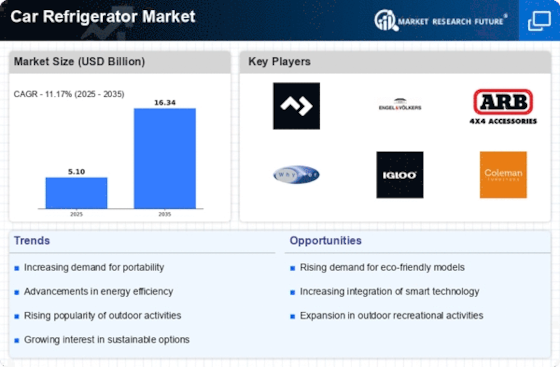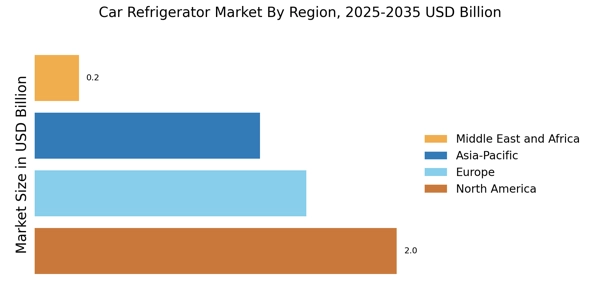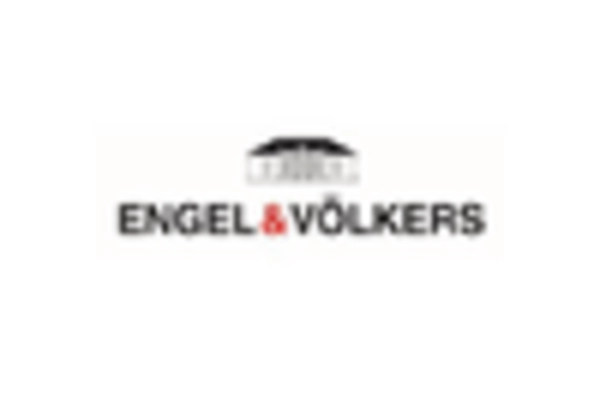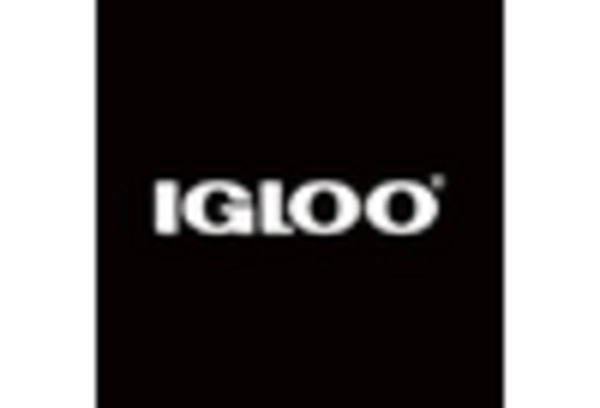Technological Advancements
Technological innovations play a pivotal role in shaping the Car Refrigerator Market. Manufacturers are increasingly integrating advanced features such as smart connectivity, energy-efficient cooling systems, and enhanced insulation materials. These advancements not only improve the performance of car refrigerators but also cater to the evolving preferences of tech-savvy consumers. Market data reveals that the introduction of smart refrigerators, which can be controlled via mobile applications, has gained traction among users. This trend indicates a shift towards more sophisticated and user-friendly products within the Car Refrigerator Market, potentially attracting a broader customer base seeking modern solutions for their refrigeration needs.
Rising Health Consciousness
The Car Refrigerator Market is witnessing a shift in consumer behavior driven by increasing health consciousness. As individuals become more aware of the importance of maintaining a balanced diet, the demand for fresh and healthy food options rises. Car refrigerators facilitate the storage of perishable items, enabling consumers to carry nutritious snacks and meals during travel. Market data suggests that the health and wellness sector is expanding, with consumers prioritizing fresh produce over processed foods. This trend indicates that the Car Refrigerator Market is likely to thrive as more individuals seek portable refrigeration solutions to support their health-oriented lifestyles.
Increasing Outdoor Activities
The Car Refrigerator Market experiences a notable surge in demand due to the rising popularity of outdoor activities such as camping, road trips, and picnics. As consumers seek convenience and comfort during their excursions, portable refrigeration solutions become essential. The market data indicates that the outdoor recreation sector has expanded significantly, with millions of individuals participating in activities that require food and beverage preservation. This trend suggests that car refrigerators are not merely luxury items but rather necessities for outdoor enthusiasts. The Car Refrigerator Market is likely to benefit from this growing consumer inclination towards adventure and exploration, as more individuals invest in portable refrigeration to enhance their outdoor experiences.
Growth of E-commerce Platforms
The Car Refrigerator Market is significantly influenced by the expansion of e-commerce platforms. As online shopping becomes increasingly prevalent, consumers gain access to a wider range of car refrigerator options, often at competitive prices. This shift in purchasing behavior is supported by market data showing a steady increase in online sales across various consumer goods categories. E-commerce platforms provide convenience and accessibility, allowing consumers to compare products and read reviews before making informed decisions. Consequently, the Car Refrigerator Market is poised for growth as more consumers turn to online channels for their refrigeration needs, enhancing market reach and visibility.
Environmental Sustainability Initiatives
The Car Refrigerator Market is increasingly shaped by environmental sustainability initiatives. As consumers become more environmentally conscious, there is a growing demand for energy-efficient and eco-friendly refrigeration solutions. Manufacturers are responding by developing products that utilize sustainable materials and energy-saving technologies. Market data indicates that consumers are willing to invest in products that align with their values regarding sustainability. This trend suggests that the Car Refrigerator Market may experience a shift towards greener alternatives, as consumers seek to minimize their carbon footprint while enjoying the benefits of portable refrigeration.


















